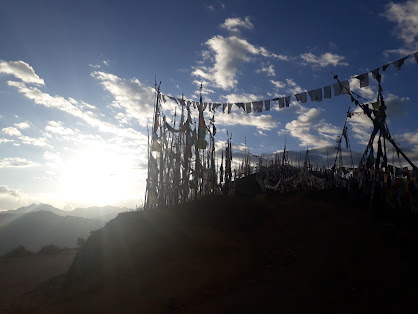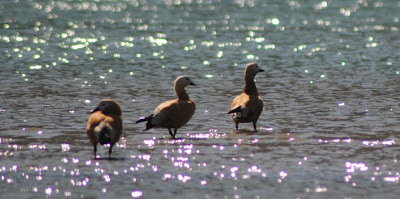I have raised this issue before and even made a few tangible suggestions to make it sustainable. In one article, I suggested the need for every Bhutanese to plant 108 trees as a citizenry mandate so that we could equate that with the trees we would cut down for the ritual when we die.
In another article, I floated a social business idea to startup prayer flag hiring company to help bereaved families deal with arduous process of hoisting prayer flag at an affordable cost by reusing old pole or finding alternative such as bamboo, plastic or steel poles.
To do more on this, I have been part of a micro project where we promoted treated bamboo pole as an alternative flagpole. We couldn’t even make a dent because we realized that there is a huge resistance.
The big question we must address is, why 108 poles? It’s fundamentally flawed to count the poles when the ritual is about the prayers printed on the flag that will flutter in the wind. Shouldn’t we be counting the number of lines of prayers we are offering in the wind?
I am not an extreme conservationist, I rather believe in sustainable harvesting of trees. I believe in felling a matured tree to build shelter and produce furniture. But I am opposed to the idea of felling young trees just to stretch a layer of prayer flags on it. Every tree is a golden goose and felling them for a mere pole is like killing the goose. It’s an unworthy sacrifice of a valuable natural resource.
There are more reasonable ways to make the offering;
- reuse old flagpoles that are lying all around uselessly. Make all the existing flagpoles public property that anyone can reuse once that prayers are faded.
- use ropes to stretch prayer flags between two poles or around one big pole. There are some fine examples. Make them popular.
- explore recycle plastic poles. I think my friend Karma Yonten can do this. He has shown the possibility with his eco-green poles.
- use steel poles. It’s far more economical because you can resell them.
- and I am wondering if it’s possible to cut out flagpoles from a big matured timber using some machine. (Business idea?)
 |
| Reusable Ru-dhar pole |
Therefore, there should be a systemic effort to putting an end to this mindless culture of massacring young trees for nothing worthwhile:
- Department of Forestry, Forest Resources Management Division must stop issuing permit for flagpoles. We must put a ban on felling young trees for flagpole or any other purpose.
- Department of Culture and Zhung Dratshang must create awareness on how the offering is about the prayer on the flag that flutter in the wind rather than the pole. Pole can be anything or nothing. Prayers matter.
Let's state the truth that it's so sinful to cut a young tree for hoisting a prayer flag.












.jpg)
.jpg)
.jpg)
.jpg)
.jpg)














